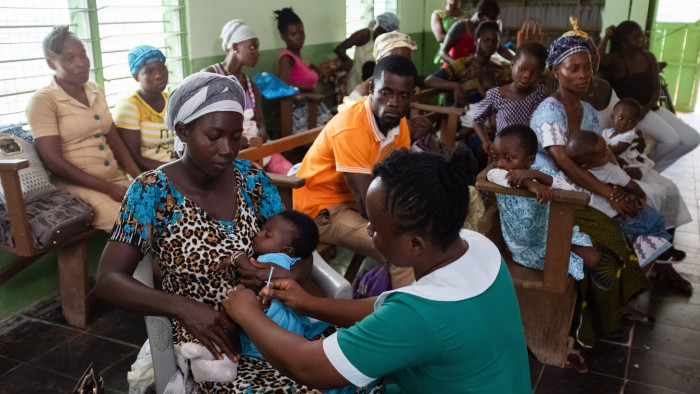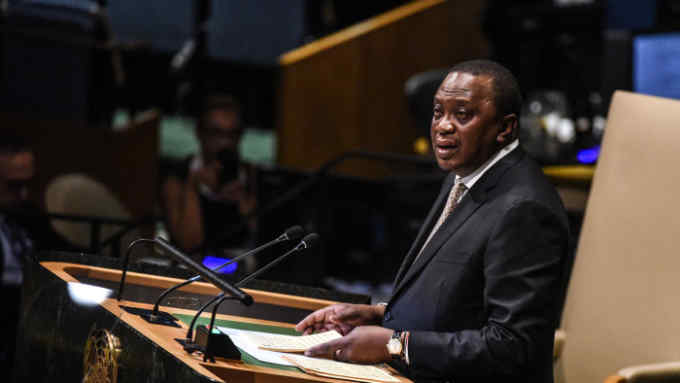Why the WHO needs a chief economist

Roula Khalaf, Editor of the FT, selects her favourite stories in this weekly newsletter.
In June this year under Japan’s presidency of the G20, global leaders brought health and finance ministers together and ordered them to deepen their co-operation. It represents for the first time the need for health and the economy to be seen as interdependent.
The connection between health, sustainable growth and poverty has been recognised for decades. The positive economic and social impact of eradicating disease is massive. Investments in fighting polio have saved around $180bn in treatment costs for the US alone. Yet these savings have not been invested back into other health challenges.
Almost 20 years after the publication of the World Health Organization’s macroeconomics and health report, health is one of the largest and fastest growing industries in the world. In many developed countries it forms a significant part of a country’s economy, accounting for more than 10 per cent of gross domestic product. It is highest in the US where it rose to 17.8 per cent in 2018.
At present however, only 10 per cent of the world’s resources for health are directed to low-income countries, while they carry the largest disease burden.
The Institute for Health Metrics and Evaluation estimates that by 2040, health spending will be $9,000 per person in high-income countries, almost $2,000 per person in middle-income countries, and only $164 in lower-income ones. The poorest countries have little chance of addressing this through fiscal policy, even when supported by development assistance.
At the UN General Assembly meeting on universal health coverage later on Monday, heads of government are expected to act. This is based on the understanding that it is impossible to deliver many of the UN’s Sustainable Development Goals, particularly those related to poverty and sustainable growth, without an agreement on affordable healthcare for all and on addressing the commercial determinants of health.
Global financial flows and investments related to health must be recalibrated to benefit health outcomes and not primarily capital markets.
The OECD and the World Bank are providing significant contributions but the WHO must lead a new approach on mapping and understanding the global health economy.
The Financial Stability Board, the international body that monitors and makes recommendations about the global financial system, must recognise that the disease burden is a growing problem for the economic resilience of the global economy, much the same as climate change. It should commission a consultation on the economic impact of disease.
The WHO director-general moreover should appoint a chief economist as a member of his senior management team. This will ensure health is permanently linked to sustainable growth.
A chief economist could provide intellectual leadership within the organisation and advise the director-general and member states on how investment could work to the benefit of global health, especially in the poorest countries.
Tasks would include directing investments and advising on how to use economic and financial data to improve strategy. The economist must be able to work with financial organisations by knowing their world and speaking their language, while being fully committed to the WHO’s goals.
The WHO is now a regular participant in G20 meetings. Its director-general must on these occasions present heads of government, as well as finance ministers and central banks, with a detailed analysis of global markets and their impact on health. This can show the evidence-based economic benefits of investing in improved healthcare, together with the significant economic and social downside of investing in harmful consumer goods.
The UN’s 2030 sustainable development goals call for a country’s progress to be measured beyond GDP and include an element of wellbeing. The proposal for a WHO chief economist is a key move in that direction.
Alan Donnelly is chair of the G20 Health and Development Partnership
Ilona Kickbusch is professor of the Graduate Institute of International and Development Studies

Comments